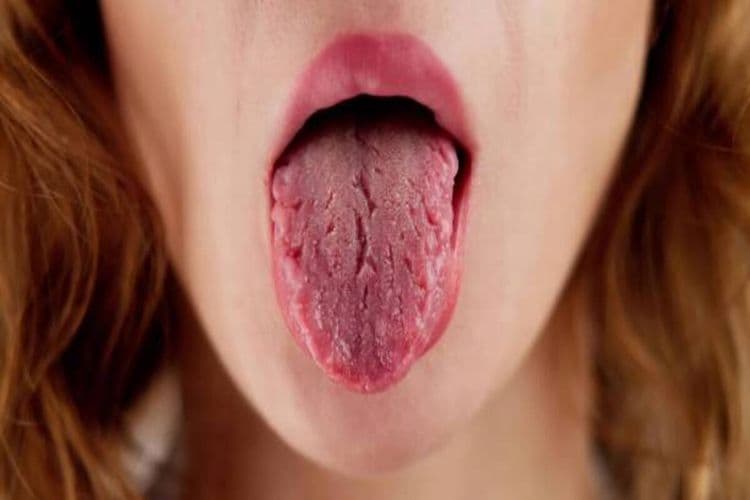The phenomenon of a dehydrated tongue, marked by a dry, rough texture and often accompanied by discomfort or difficulty in communication, is a topic that warrants further exploration. With symptoms ranging from an inflamed appearance to altered taste sensation, this condition may stem from factors such as insufficient fluid consumption, environmental influences, certain medications, or underlying health issues. The significance of maintaining proper hydration for oral health and overall wellness is therefore underscored. As we move forward, we will unpack these aspects, encouraging a deeper understanding of this condition’s implications and potential strategies for prevention and management.
Understanding Dehydration
Although it may seem relatively insignificant, dehydration is a serious health issue that requires proper understanding and attention. Dehydration refers to a state where the body loses more fluids than it absorbs, often leading to an imbalance in the body’s metabolism. The effects of dehydration can range from mild inconveniences, like a dry mouth or fatigue, to severe complications, such as heat injuries or kidney problems. Various hydration methods are available to prevent and treat dehydration. Drinking plenty of water is the most straightforward and effective way. Certain foods high in water content, and rehydration solutions or sports drinks can also play a significant role in maintaining ideal hydration levels. Understanding the causes, effects, and prevention methods is key to managing dehydration effectively.
Symptoms of Dehydrated Tongue
A dehydrated tongue, a common symptom of dehydration, can manifest in several noticeable ways. The most obvious sign is tongue dryness, which results in a rough, parched feeling in the mouth. This may be accompanied by a swollen, enlarged tongue that looks red or darker than usual. Dehydration symptoms may also include a thick, sticky saliva and difficulty in swallowing due to decreased saliva production. Other symptoms include a cracked or furrowed tongue, often accompanied by a white or yellowish coating. Bad breath is another common symptom, resulting from the reduced salivation which allows bacteria to thrive. Finally, a dehydrated tongue may alter the sense of taste, causing a metallic taste or even complete loss of taste.
Causes of Tongue Dehydration
Several factors can contribute to tongue dehydration. Common culprits include inadequate fluid intake, often due to a lack of access to hydration sources or neglecting tongue care. Consuming excessive amounts of caffeine or alcohol, both known diuretics, can also lead to a dehydrated tongue. Certain medications and health conditions, such as diabetes or Sjogren’s syndrome, can also cause dry mouth and tongue. Environmental factors, like exposure to dry air or high temperatures, can also contribute to tongue dehydration. Finally, habits such as mouth breathing or snoring can exacerbate the condition. Strategies for prevention include maintaining proper tongue care and ensuring access to and consumption of appropriate hydration sources.
Health Risks Associated With Dehydration
Understanding the potential health risks associated with dehydration is essential, especially when considering its impact on tongue health. Dehydration can lead to a host of health complications including kidney stones, heat stroke, and hypovolemic shock, a life-threatening condition characterized by low blood volume. In addition, chronic dehydration can exacerbate existing health issues such as hypertension and renal disease. The tongue, a muscular organ rich in blood vessels, can become dehydrated, leading to discomfort and potentially hindering essential functions like speech, swallowing, and taste. Dehydration prevention is vital to maintaining overall health and specifically, tongue health. This involves regular consumption of fluids, especially water, and monitoring signs of dehydration such as dry mouth, fatigue, and decreased urine output.
Relation Between Dehydration and Oral Health
Dehydration’s impact extends beyond general health issues, greatly affecting oral health as well. Proper oral hygiene is contingent upon sufficient saliva production, which is severely hampered by dehydration.
- Dry mouth: Dehydration reduces saliva’s ability to flush away bacteria, leading to a dry mouth that fosters bacterial growth.
- Gum disease: Dehydration can cause dryness and inflammation of the gums, increasing the risk of gum disease.
- Tooth decay: Saliva plays a key role in preventing tooth decay. Absence of saliva due to dehydration can increase susceptibility to cavities.
- Bad breath: Dehydration can lead to bad breath, as dry conditions in the mouth allow bacteria to thrive.
Therefore, maintaining proper hydration is essential for maintaining oral health.
Preventative Measures for Tongue Dehydration
Recognizing the importance of maintaining adequate hydration is the first step in preventing tongue dehydration. It is also essential to identify the early signs of dehydration, such as a dry mouth or a coated tongue, which can be key indicators of the body’s need for more fluids. Finally, adopting appropriate hydration habits, specifically tailored for oral health, can help guarantee the tongue remains adequately moisturized and healthy.

Importance of Adequate Hydration
Maintaining ideal hydration levels plays a pivotal role in preventing tongue dehydration, an often overlooked aspect of overall health. Adequate fluid intake is essential not just for overall body functions, but specifically for maintaining tongue health.
Here are the four key hydration benefits:
- Keeps the Tongue Moist: Hydration helps keep the tongue moist, preventing it from drying out and causing discomfort or other health issues.
- Promotes Proper Taste and Smell: Adequate hydration aids in maintaining the tongue’s sensitivity to taste and smell.
- Aids in Digestion: A well-hydrated tongue assists in the digestion process, starting from the initial breakdown of food.
- Supports Oral Health: Proper hydration can help prevent oral health problems including gum disease and tooth decay.
Identifying Dehydration Symptoms
While it is paramount to understand the importance of hydration for tongue health, it is equally as essential to identify the symptoms of dehydration early on to prevent potential harm. Dehydration can manifest in the form of a dry, sticky mouth and a swollen, red, or cracked tongue. Bad breath and a decreased saliva production may also be indicative. These symptoms should trigger immediate application of hydration strategies. It’s worth noting that thirst isn’t always a reliable early indicator of the body’s need for water. This is one of the common dehydration myths. Frequent monitoring of these symptoms is critical, as dehydration has far-reaching effects and can severely impact overall oral health.
Hydration Tips for Tongue
How can one effectively prevent tongue dehydration? The answer lies in a combination of hydration beverages and tongue moisturizers.
- Hydration Beverages: Increase your intake of water, fresh fruit juices, and other hydrating liquids. These will not only quench your thirst but also keep your tongue moisturized.
- Tongue Moisturizers: Use oral lubricants or saliva substitutes to keep your tongue moist. These are available over-the-counter.
- Healthy Diet: Eating foods rich in water content like fruits and vegetables can also aid in maintaining tongue hydration.
- Regular Check-ups: Regular dental check-ups can help detect any signs of dehydration early and take necessary measures.
Medical Solutions for Dehydrated Tongue
Addressing the issue of a dehydrated tongue medically involves several strategies, primarily hydration therapy and medicinal remedies. Hydration therapy aims to replenish the body’s water levels, simultaneously alleviating the dryness in the tongue. Medicinal remedies, on the other hand, may include prescribed medications that target the root cause of dehydration, offering a more thorough approach to treatment.
Hydration Therapy Treatment
Revitalizing the parched tissues of a dehydrated tongue often necessitates medical intervention in the form of hydration therapy treatment. This approach targets the root cause of dehydration, replenishing the body’s water levels to restore oral health.
- Hydration therapy treatments can be administered intravenously or orally, depending on the severity of the dehydration.
- The hydration benefits include increased salivation, improved tongue texture, and reduced symptoms of dry mouth.
- Despite hydration myths, drinking excessive amounts of water without proper medical guidance can lead to water intoxication.
- Regularly scheduled hydration therapy can help maintain ideal hydration levels, preventing future instances of tongue dehydration.
Medicinal Remedies Overview
While hydration therapy serves as a primary solution for a dehydrated tongue, there are also several medicinal remedies that can alleviate symptoms and aid in recovery. Herbal remedies are often recommended due to their natural healing properties. Aloe Vera, for instance, can soothe irritation and promote healing with its anti-inflammatory and hydrating benefits. Chamomile is another herbal remedy that can help reduce inflammation and discomfort. Furthermore, homeopathic options like Mercurius solubilis and Nux vomica can help balance the body’s hydration levels, especially when dehydration results from an internal imbalance. As always, these remedies should be used under the guidance of a healthcare professional to guarantee safety and effectiveness.
Lifestyle Changes to Avoid Dehydration
To maintain ideal hydration and prevent the discomfort of a dehydrated tongue, one must consider making a few integral lifestyle changes. These changes aim to improve your hydration habits and increase your overall fluid intake.
- Water Consumption: Prioritize water as your primary drink. Consuming at least eight glasses daily is typically recommended.
- Limit Diuretics: Limit consumption of beverages like coffee and alcohol that can increase dehydration.
- Balanced Diet: Include water-rich foods in your diet like fruits and vegetables, which can increase your fluid intake.
- Regular Exercise: Exercise promotes overall health and aids hydration. However, verify to increase your fluid intake to compensate for the water lost during physical activities.
Incorporating these lifestyle changes can greatly help in preventing a dehydrated tongue.
Frequently Asked Questions
Can Tongue Dehydration Affect My Sense of Taste?
Yes, tongue dehydration can indeed affect your sense of taste. Dehydration symptoms often include a dry mouth and tongue, leading to reduced taste sensitivity, as a well-hydrated tongue is essential for proper taste function.
How Does Tongue Dehydration Impact Speech?
Tongue dehydration can greatly impact speech clarity. Lack of sufficient moisture may cause difficulty in articulating words, leading to unclear speech. Additionally, it can contribute to vocal strain, affecting overall speech quality and comfort.
Can Certain Medications Cause Tongue Dehydration?
Yes, certain medications can cause tongue dehydration. Diuretics, antihistamines, and certain types of antidepressants can impact hydration levels, potentially leading to a dehydrated tongue and associated symptoms such as dry mouth and speech difficulties.
Is Tongue Dehydration Common in Certain Age Groups or Populations?
Tongue dehydration is not specifically linked to certain age groups or populations. However, age-related factors and population differences may influence hydration status, potentially impacting oral moisture levels and leading to perceived tongue dehydration.
Are There Home Remedies for Tongue Dehydration?
Yes, there are numerous home remedies for tongue dehydration. These include drinking ample water, consuming hydrating foods, using a humidifier, and avoiding dry or salty foods. Proper oral hygiene can also prevent dehydration.


